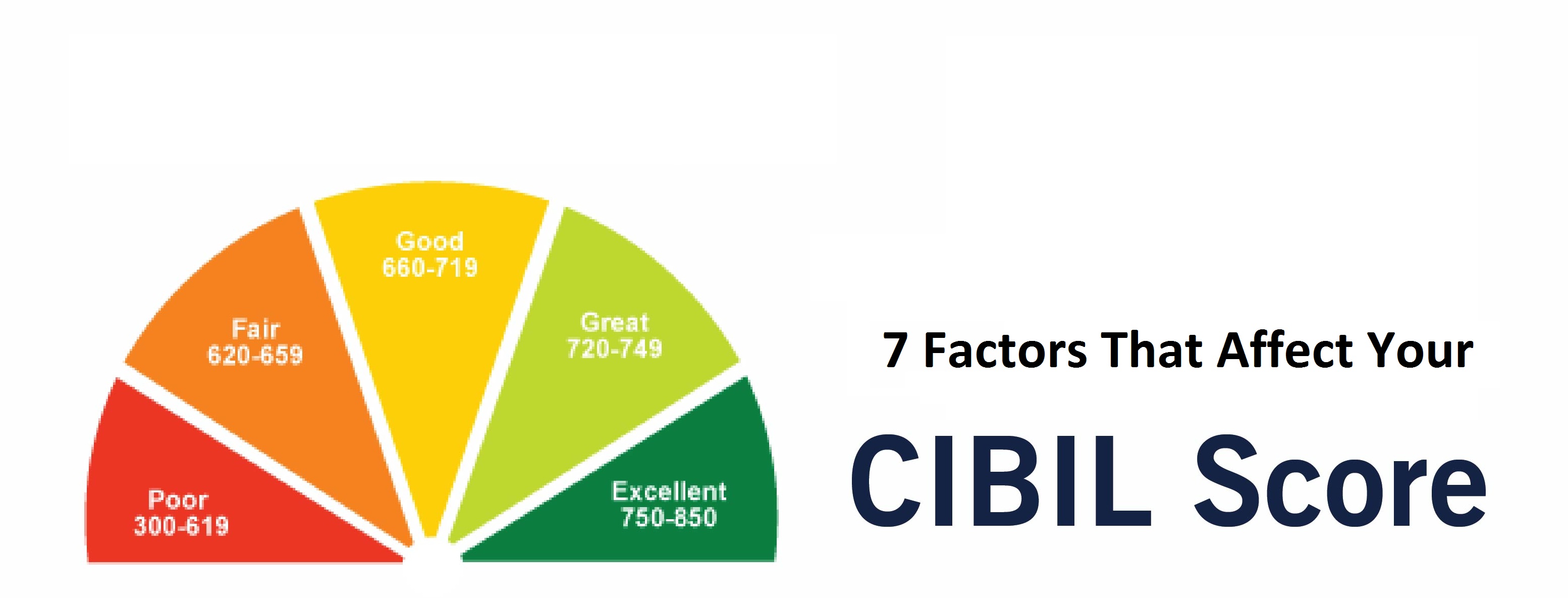When anyone wants to apply for a loan first thing a bank asks is, “What is your CIBIL score?” A CIBIL score is prepared by CIBIL (Credit Information Bureau, India Limited). It is a three digit summary of the applicant’s whole credit history. The CIBIL score ranges from 300 to 900. It is determined by the applicant’s financial history which includes previous loan details, savings accounts, transactions, income details, ITR, age, locality etc.
Banks decide whether to give the applicant loan or not by judging the CIBIL score. Thus those who want to get a good, hassle free loan with exciting interest rate should build their CIBIL score cautiously. There are various factors which can affect a CIBIL score and applicant should be aware of them all:
- Repayment History:
If the borrower has taken a loan previously then the repayment pattern of the loan is taken into consideration while forming the CIBIL score. If the borrower has missed any repayment or there are a number of repayments reflecting on his/her profile, it can hurt badly their CIBIL score. The payments on credit card debt are also considered here. That’s why one should always opt for auto-repayment option when it comes to EMIs or bill payments.
- Multiple Credit Cards and Unsecured Loans:
Unsecured loans are the most expensive loans. Borrowers have to pay higher interest rates in them thus making higher repayments. Even having multiple credit cards can mean higher repayments. Multiple repayments are a result of multiple debts. For many financial institutions this serves as a habit of mismanagement of finances. This can be harmful to build a strong CIBIL score.
- Signing as a Guarantor for Loans:
When a borrower pledges to be a guarantor for someone’s loan; it could affect his/her CIBIL score. If the original applicant fails to pay off the loan, it becomes the guarantor’s responsibility to pay off the loan. Thus making the guarantor liable. Many times even the guarantors fail to pay off the loan in adverse situations. It ultimately results in a bad CIBIL score.
- Failed Loan Settlements:
In many instances borrowers fail to settle their loans. That means they fail to pay off their loan in full before the designated tenure. Ultimately they have to settle the loan with the bank. This works as a total negative pointer for the CIBIL score. Financial institutions clearly reject loans for such borrowers.
- Not Using the Credit Card:
Many customers think that credit cards are too expensive and can lead to bad credit habits. They find the repayment structure complicated and out of their reach. That’s why even when one carries a credit card, he or she hardly uses it. That’s another negative reflect on CIBIL score. One should use the credit card as it can be a witness to the borrower’s clean payment history and can help to build a strong CIBIL score.
- Not Rectifying the CIBIL Report:
When the CIBIL score comes, one should always check his/her credit report. Many times the credit reports are flawed as the information given to CIBIL can be wronged or misinterpreted. That’s why one should always check the credit report and rectify the said errors. As these errors might stay on your CIBIL history and can affect your future loan applications.
- Having no Loans at all:
Having no loans may affect a borrower’s CIBIL score adversely. Loan repayments can stand as a strong proof of financial history. It can surely help to build a perfect CIBIL score.
Why don’t you check your credit score here for free and know your status?










